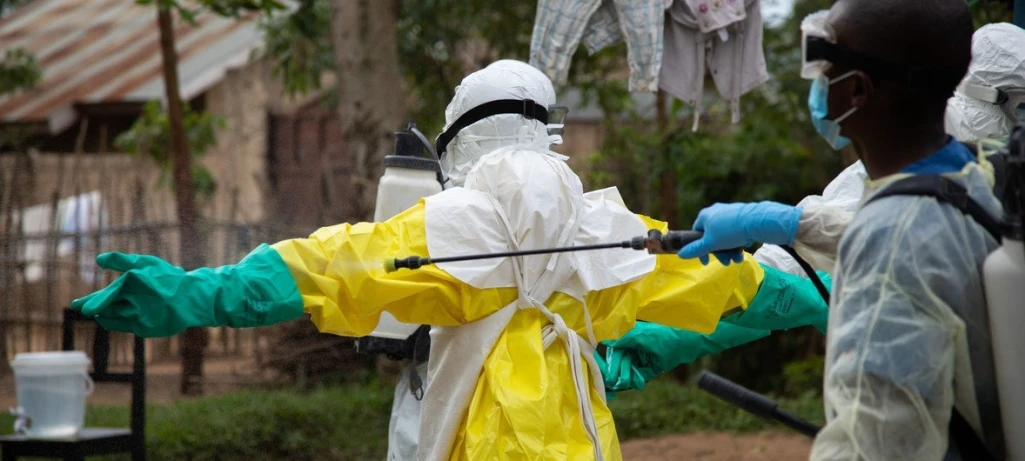
South Sudan has approved half a million U.S dollars to the Ebola response fund following an outbreak of the deadly virus in neighboring Uganda.
The Council of Ministers meeting in Juba on Friday granted the Ministry of Health the money to facilitate its response plans.
It said it is deploying dispatching medical teams to Nimule and Yambio to monitor the border entry points.
The Ministry of Health identified Juba, Nimule, Kaya, Yambio, Ezo, Maridi, Kajokeji, Tambura and Yei as high risk areas with a lot of movement between the border points.
The cabinet today moved to support the measures of the Ministry of Health.
“We have approved half a million dollars,…for emergency control and the minister [of finance] responded immediately that once the paper work is presented, even today; he will be able to pay,” said Dr. Martin Elia Lomoro, national Minister of Cabinet Affairs.
The money is expected to facilitate the work of the medical teams in terms of surveillance, Laboratory, Emergency Treatment Unit and Infection Prevention Control.
“The council has considered and recognized the importance of controlling the Ebola at the entry points that are close to Uganda and DRC, and we asked the ministry whether they have equipment, facility, readiness and the expertise to test and be able to control the disease, and we were told that the ministry is capable,” Dr. Elia added.
Uganda has so far registered nearly 10 cases of Ebola.
Ebola Virus Disease (EVD) is a rare and deadly disease in people and nonhuman primates.
People can get EVD through close contact with the blood, secretions, organs or other bodily fluids of infected animals such as fruit bats, chimpanzees, gorillas, monkeys, forest antelope or porcupines found ill or dead or in the rainforest.
Symptoms of EVD can be sudden and include fever, fatigue, muscle pain, headache, sore throat, vomiting, diarrhoea, rash.
In some cases, both internal and external bleeding (for example, oozing from the gums, or blood in the stools).
According the World Health Organization, supportive care – rehydration with oral or intravenous fluids – and treatment of specific symptoms improves survival. A range of potential treatments including blood products, immune therapies and drug therapies are currently being evaluated.